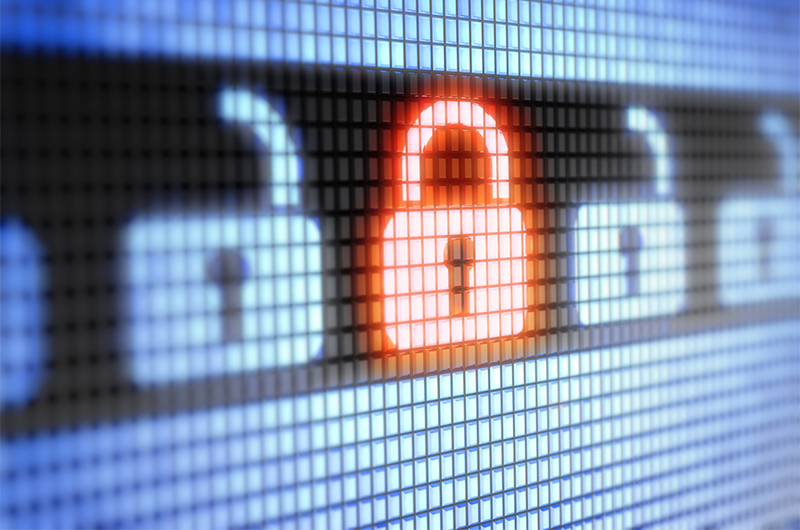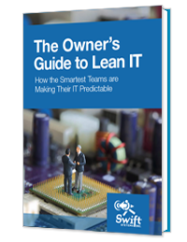
3 Ways to Protect Your Business in Honor of Cybersecurity Awareness Month
October is National Cybersecurity Awareness Month – a collaborative effort between the Department of Homeland Security and its public and private partners to raise awareness about the vital role cybersecurity plays in the lives of U.S. citizens.
If you even glanced at a television this year, you understand why cybersecurity is so important. Here are a few reminders in case you’d forgotten:
- Equifax data breach: Equifax is one of the largest credit reporting agencies in America. Hackers gained access to Equifax data on as many as 143 million Americans. That’s nearly half the population of the United States as of the last census. Personal information, including names, birthdays, social security numbers, address, was stolen. Equifax later admitted the company was hacked twice this year.
- HBO hack: Hackers stole a lot of data from the premium cable network back in July. They held the information for ransom, threatening to release unaired episodes of Game of Thrones, Curb Your Enthusiasm, and more. HBO refused to pay, even when the hackers started releasing the phone numbers of the stars of Game of Thrones and HBO executives, as well as an episode of Game of Thrones.
- SEC hack: The Securities and Exchange Commission in September announced it was hacked, and that attackers had taken private information that could have been exploited for trading. Although it was announced in September, the hack actually happened in 2016.
These are but a few of the more recent cybersecurity incidents. This year is poised to see a record number of data breaches and ransomware attacks. So, in honor of National Cybersecurity Awareness Month, here are three ways to protect your business online.
Antivirus and Anti-malware programs
If the WannaCry and Petya ransomware attacks have taught us anything, it’s that professional anti-malware and anti-virus programs are absolutely necessities to protect your business from hackers.
Programs, such as Intercept X by Sophos, help to protect your company against malicious ransomware attacks.
Most malware is installed through network security hacks, but being vigilant about cybercrime is as much about anticipating tomorrow’s threats as it is defending against today’s. E-mail phishing, spoofing, and apps that access social media accounts are popping up with increasing regularity. Loading anti-malware and anti-virus protection on your machines – that goes for mobile devices as well – and running it after every software install can help ensure these threats aren’t actualized.
Also, keeping programs and hardware up to date – from upgrading to newer routers and computers to immediately installing browser updates – can help to block malicious worms that thrive in older equipment and out-of-date software.
Make Sure Your Data is Secure and Encrypted
Hackers are focused on two things – creating chaos and stealing money. If your data is unsecured, bank routing digits, credit card accounts, employee social security numbers, etc., are all a gold mine for hackers.
If your data isn’t currently being transmitted over the internet, you want it to be encrypted. Also, think about turning on full-disk encryption tools that come standard on most operating systems – for PCs, it’s called BitLocker, while on Macs it’s called FileVault.
Activating the feature takes only a few minutes; once on, it’ll encrypt every file and program on the drive with no noticeable performance lag. But there is one catch: the encryption applies only when users are logged in to the computer. That means hackers can still attack through viruses and malware while the system is running. Setting computers to automatically log out after 15 minutes without use helps enforce this measure.
The worst-case scenario if you don’t follow these procedures? You don’t encrypt your drives, but a devilish hacker does and ransoms all of your company’s data.
Create Complex Passwords
We are long removed from the days when having “password” or “1234” as your password was acceptable. Today, passwords need to be complex – at least six characters long, without containing the username, and containing numbers, letters, symbols, and uppercase and lowercase letters.
In theory, a password can contain as many as 127 characters, although you won’t remember that, and you should NEVER write it down. Ideally, your unique password would look something like this: 1aBD&9qNK)0_1pdq. Basically, something that means absolutely nothing and is almost impossible to figure out, even if hackers were to use a brute force attack.
There are password programs, such as LastPass and 1Password, that manage passwords for you. Basically, you create one really hard password that you can remember to access these programs, and all of the passwords you need for all of the sites and other things you need password for are there for you. These passwords can be incredibly long and ultra-complex, and you never have to remember them. You only have to remember the password that allows you to access the program.
Bring in the Cybersecurity Professionals
At Swift Systems, we’ve faced all kinds of cybersecurity threats over the past two decades. We know how to keep your business safe and secure in the digital world.
Let us show you how we can secure your business, as we’ve done with so many others in the Maryland area. Contact us today, or give us a call at 301-682-5100.

IT systems are foundational to modern businesses. Too often, that foundation is unsteady. Unpredictable outages, insecure networks, and unreliable performance from mission-critical systems can jeopardize your entire business.
There’s a better way. Learn how.
Get in touch with us for a free consultation with one of our technical experts. We’ll review your current systems, assess your needs, and identify the coverage options to best meet them.
Get in touch with us by phone:

